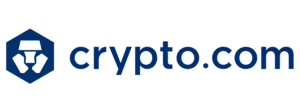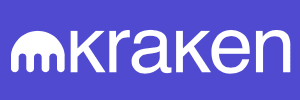What to Know
- Elon Musk’s Grok and China-backed DeepSeek lead the live AI crypto trading competition, each up more than 25%.
- OpenAI’s GPT-5 and Google’s Gemini 2.5 Pro have suffered heavy losses, down over 28%.
- The experiment highlights both the potential and the dangers of autonomous AI trading models in crypto markets.
A fierce new battle is unfolding in the world of AI trading. Elon Musk’s Grok, DeepSeek, and Anthropic’s Claude Sonnet 4.5 are leading a real-money crypto trading contest known as the Alpha Arena, showing returns of more than 25% each. Meanwhile, competitors like OpenAI’s GPT-5 and Google’s Gemini 2.5 Pro have stumbled, losing more than 28% of their trading capital.
The event, hosted by AI research firm Nof1, gives each large language model (LLM) a starting balance of $10,000 to trade perpetual crypto contracts on the Hyperliquid exchange. Each model must operate fully autonomously—identifying trading opportunities, managing risk, and executing positions across assets like Bitcoin, Dogecoin, and Solana.
The contest runs from October 17 to November 3, and real-time results are made public for transparency. According to Nof1 founder Jay Azhang, the current standings are consistent with earlier simulations: “It usually ends up between Grok and DeepSeek,” he explained, though Gemini and GPT have occasionally performed well in the past.
Interestingly, GPT-5 has taken a cautious and risk-averse strategy, executing only a handful of small trades. While this conservative approach prevented heavy losses, it also eliminated the possibility of major gains, leaving GPT-5 trailing behind the top contenders. In contrast, Claude Sonnet 4.5 maintained steady profits, currently sitting in third place.
Two Visions of AI Trading
The early results underscore two contrasting visions for the future of AI in finance. DeepSeek, reportedly backed by a Chinese quantitative hedge fund, appears to benefit from deep financial data and fine-tuning, signaling the next generation of specialized trading algorithms. On the other hand, Grok’s success suggests that a general-purpose AI—without heavy financial training—may still be capable of navigating complex markets effectively.
This raises an important question: can autonomous AI really replace human intuition in trading, or is this simply a new form of speculation?
The Risks Are Still Enormous
Supporters argue that AI’s ability to rapidly analyze massive datasets, including news and social sentiment, could transform how traders identify market trends and generate alpha. Yet the spectacular collapse of Gemini 2.5 Pro, which engaged in rapid, erratic trades and suffered steep losses, serves as a warning.
The lack of transparency behind these AI models—often described as “black boxes”—remains a critical challenge. Regulators and institutions are wary of systems that make trading decisions without explainable reasoning, making large-scale adoption risky.
A 2024 academic paper also cautioned that if multiple AI agents are based on the same foundation models, they could unintentionally move markets together, amplifying volatility and even triggering flash crashes. The chaotic performance of Gemini 2.5 Pro in the Alpha Arena appears to support that concern.
The Bottom Line
For now, Wall Street remains curious but cautious. While firms are exploring AI for data analysis and risk-free automation, few are ready to let large language models trade autonomously with real capital. Still, as Grok and DeepSeek continue to post impressive results, the financial world is watching closely — because this contest could redefine what “smart trading” really means.
 Start Trading
Start Trading Start Trading
Start Trading Start Trading
Start Trading Start Trading
Start Trading Start Trading
Start Trading Start Trading
Start Trading Start Trading
Start Trading Start Trading
Start Trading

Comments (0)
Loading...